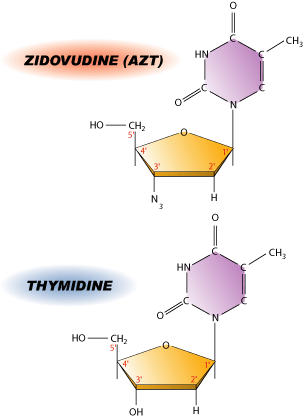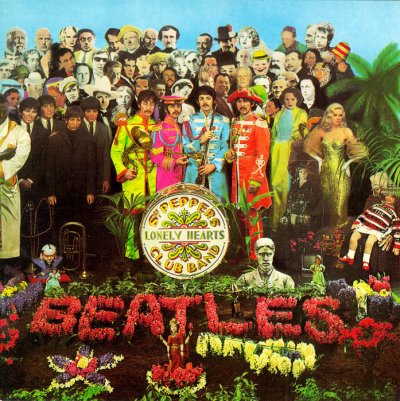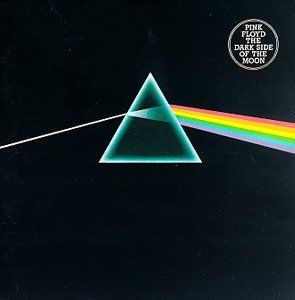Entries from April 2008
April 21st, 2008 · Comments Off on Opposing Views
Introduction to AZT |The Chemistry of AZT| Side Effects| Pregnancy| An Anything But American Virus| Opposing Views| How AZT Changed History|
- AZT is given to newborn babies who test positive for HIV
- Vaccinations and hemophilia can cause false positives in an HIV test. Drugs are administered anyway and babies die only months later
- “…HIV-positive children who took AZT were three times more likely to develop AIDS or die by 18 months than those who did not.” (Roleff 201)
- Some viral patients rather just deal with the effects of the virus rather than the sickening and disabling side effects of AZT
[Read more →]
Categories: AZT
April 21st, 2008 · Comments Off on An Anything But American Virus
Introduction to AZT |The Chemistry of AZT| Side Effects| Pregnancy| An Anything But American Virus| Opposing Views| How AZT Changed History|
- HIV/AIDS is stereotypically synonymous with African Americans, gay males, and residents of poor countries (reason why the cure is taking so long, if it affected white females as much as black females, then more medicine that works would be readily available)
[Read more →]
Categories: AZT
April 21st, 2008 · Comments Off on Side Effects
Introduction to AZT |The Chemistry of AZT| Side Effects| Pregnancy| An Anything But American Virus| Opposing Views| How AZT Changed History|
- Pancytopenia (a shortage of red and white blood cells)
- Myopathy (disease causing your muscles to become weak or wasted)
- Nausea, headaches, vomiting
- Changes in skin and nail color
- Rare but have been reported: pancreatitis (inflammation of the pancreas), vasculitis (inflammation of the blood vessels), and seizures
[Read more →]
Categories: AZT
April 20th, 2008 · Comments Off on The Chemistry of AZT
Introduction to AZT|The Chemistry of AZT| Side Effects| Pregnancy| An Anything But American Virus| Opposing Views| How AZT Changed History|
- AZT C10H13N5O4 is a nucleoside analog of thymidine C10H14N2O5

- Without the OH group, the next DNA base has nothing to attach to and makes small bits of DNA rather than a single continuous molecule
- AZT prohibits reverse transcriptase, which is what allows the virus to replicate by making DNA from RNA
[Read more →]
Categories: AZT
April 20th, 2008 · Comments Off on Introduction to AZT
Introduction to AZT |The Chemistry of AZT| Side Effects| Pregnancy| An Anything But American Virus| Opposing Views| How AZT Changed History|
- AZT (Azidothymidine) is marketed under the name Retrovir
- First drug approved for the treatment of AIDS and HIV infection in 1987
- Does not cure AIDS but slows the progression of the disease and the replication of the virus
- It is taken along with other antiviral drugs that make up a “cocktail”

[Read more →]
Categories: AZT
April 20th, 2008 · 1 Comment
Pet Sounds: What is an Album? / History of Recorded Sound / History of Polyvinyl Chloride / Vinyl Records: LPs and 45s / Album Conventions / Health and Environmental Issues / Downfall of Vinyl Records
- Polyvinyl Chloride has been linked to various health and environment risks.
- While the production of Polyvinyl Chloride uses less petroleum than most other plastics it is very hard to recycle.
- Vinyl Chloride, the monomer of polyvinyl chloride, has been linked to a rare cancer of the liver as well as a few others.
- Greenpeace has claimed that dioxin is produced from PVC. Dioxins have been linked to immune system suppression, reproductive disorders, and a variety of cancers.
[Read more →]
Categories: Polyvinylchloride/Vinyl
April 20th, 2008 · 1 Comment
Pet Sounds: What is an Album? / History of Recorded Sound / History of Polyvinyl Chloride / Vinyl Records: LPs and 45s / Album Conventions / Health and Environmental Issues / Downfall of Vinyl Records
In the 1980s the CD was introduced to consumers and it quickly over took vinyl records as the most popular form of recorded music.
The CD maintains all of the Album’s defining characteristics. Albums today are sometimes produced on both vinyl and Compact Disc, however many albums will never be on the classic format. Every modern album produced on CD could never have existed if it were not for Polyvinyl Chloride.
MP3s unlike CDs are fundamentally different from records. With the nearly unlimited space of digital recordings coupled with the vast connectivity of the internet the future of the album is questionable. Just as a great deal of Audiophiles and Record collectors cling to vinyl and claim its superiority over tapes and CDs, so too do even more people cling to physical albums over electronic files. However, the popularity of itunes cannot be over looked. The Album may, some day soon, be forgotten.
[Read more →]
Categories: Polyvinylchloride/Vinyl
April 20th, 2008 · Comments Off on Album Conventions
Pet Sounds: What is an Album? / History of Recorded Sound / History of Polyvinyl Chloride / Vinyl Records: LPs and 45s / Album Conventions / Health and Environmental Issues / Downfall of Vinyl Records


An Album has its own name. This is extremely important because it suggests that an album is its own thing. It stands alone as a self contained piece of art. Without the length of time allowed for by Polyvinyl Chloride this could not be so.
The Album has cover art. Seen above are two famous examples. The top is the Beatles’ Sgt. Pepper’s Lonely Hearts Club Band. The bottom is Pink Floyd’s The Dark Side of the Moon. Album art itself became an important and popular medium.
In adition to external artwork albums typically contain liner notes or other inserts (even some electronic albums).
[Read more →]
Categories: Polyvinylchloride/Vinyl
April 20th, 2008 · Comments Off on Vinyl Records: LPs and 45s
Because of its structure, Polyvinyl Chloride could be molded much more complex forms. This led to the microgroove technology that is responsible for modem day albums. Because vinyl was more durable and flexible the groove carved into the disc was one third the size of the groove in the old records. The groves themselves could be more intricate and thus the record could be recorded and played back much slower.
Two record formats were released in this time.
- In 1948, Columbia Records developed a record that rotated thirty three and one-third times per minute and was twelve inches in diameter. This dramatically increased the amount of recorded sound on a single record to about a half hour on each side from the original 4-5 minutes per side. The new format was christened the LP, for Long Play, to differentiate it from the old 78s
- In 1949, RCA Victor developed a 45 rotation per minute format to compete with the new LPs. However these records were much smaller, having only a 7” diameter and much larger holes in the middle (Katz, 2004). Thus, the 45 was very similar to 78’s in length.
These two formats, that were only possible because of polyvinyl chloride, contributed fundamentally to popular music, the album and youth culture of the 20th century. The long playing vinyl records allowed for much larger collections of songs to be on one record. This created a completely different listening experience. It allowed for listeners to hear a corpus of an artist with just purchasing a single record. The brief 45s allowed for radio and jukebox play thus creating a force for popularizing music. These factors contributed to the development of fandom of musicians among the youth. Polyvinyl chloride allowed American teenagers to become familiar with multiple songs by an artist and bands.
[Read more →]
Categories: Polyvinylchloride/Vinyl
![]() Pet Sounds: What is an Album? / History of Recorded Sound / History of Polyvinyl Chloride / Vinyl Records: LPs and 45s / Album Conventions / Health and Environmental Issues / Downfall of Vinyl Records
Pet Sounds: What is an Album? / History of Recorded Sound / History of Polyvinyl Chloride / Vinyl Records: LPs and 45s / Album Conventions / Health and Environmental Issues / Downfall of Vinyl Records
Polyvinyl Chloride was discovery in 1835 by Henri Victor Regnault who did not patent it or find any use for it. PVC was rediscovered by multiple scientists but it wasn’t until 1926 when Waldo Semon, a B.F. Goodrich employee, mixed it with other materials that it became useful.
In the polymerization of vinyl chloride, the double bond is broken into a single bond and the two remaining electrons rearrange to the other side of the carbon atoms to create a place to connect more monomers.

The Vinyl Chloride Monomer:
A Polyvinyl Chloride chain:
Because of its strucutre Polyvinyl Chloride is an ideal plastic for many things including records.
[Read more →]
Categories: Polyvinylchloride/Vinyl





